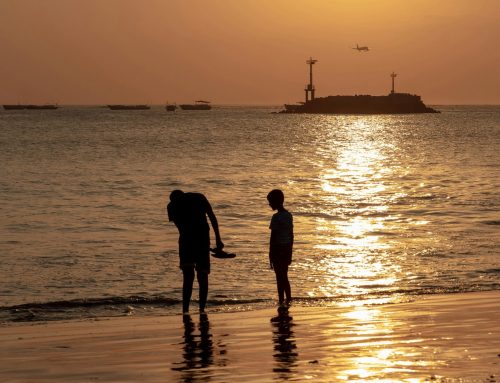The name Tirta Empul itself means holy spring that emerges from the ground. Inside the temple, there is a sacred spring believed to have various benefits, one of which is to purify oneself both physically and spiritually. Before the 1980s, this temple was solely used as a sacred place and had not been commercialized into a tourist attraction.
However, with the growth of tourism in Bali, the temple, which bears witness to a long history of Hinduism, has its own charm to attract visitors and witness it firsthand.
Tirta Empul Temple is located in the village of Manukaya, Tampaksiring, Gianyar. The temple is 42 kilometers away from Denpasar City Center, with a travel time of about 1 hour and 10 minutes. If coming from Ngurah Rai Airport, the distance is 52 kilometers, and the travel time is around 1 hour and 20 minutes.
History: Tirta Empul Temple was discovered around 926 AD. The existence of this temple as a sacred place can be traced through the inscription of Prasasti Manukaya in 1960, issued by Kuno Jayasingha Warmadewa, now kept in Pura Sakenan in the village of Manukaya, Tampaksiring, Gianyar.
Moreover, the history of Tirta Empul Temple is mentioned in the kakawin (Javanese poetry) by Dang Hyang Nirartha, narrating the victory of Lord Indra and his troops in their battle against King Mayadanawa.
For the purpose of war, Lord Indra, with his sacred rod, created a source of holy water now known as “Tirta Empul.” At that time, this spring was used for cleansing, purging shame, and religious purposes.
It is also told that this holy water was used to treat the wounded soldiers during the war against Mayadenawa’s forces. Until now, it is believed that this holy water has extraordinary healing properties.
Tourist Attractions: With its main function as a place of worship for Hindus, Tirta Empul Temple is often visited for purification rituals using the holy water of Tirta Empul. Within the temple area, there are two rectangular pools with 26 fountains.
The water that emerges from this spring is considered holy by Hindu worshippers, used for purification and seeking blessings. The temple has three parts: Nista Mandala or Jaba Sisi (outer part), Madya Mandala or Jaba Tengah (middle part), and Utama Mandala or Jeroan (main part of the temple).
After paying the entrance fee, visitors will pass through a gate that serves as the entrance to Jaba Sisi. Here, you will find several buildings suitable for photo spots and some food vendors, so you won’t have to worry about hunger while in the temple area.
In Jaba Tengah, there are two large rectangular pools typically used for purification ceremonies. Furthermore, in Jeroan, there is a large pool that collects water, which is then channeled to the fountains in the purification pool.
For visitors who want to participate in the purification ritual, the process begins by offering canang (Balinese offerings) at each fountain. Each fountain has a different function and name, including Tirta Sudamala, Tirta Penglukatan, and Tirta Panegtegan.
After offering canang, visitors perform purification by washing their faces three times, rinsing their mouths three times, and drinking once. Then, they fold their hands on their chest while reciting prayers.
In addition to the purification ritual, tourists can also explore the surrounding area to see traditional Balinese cultural buildings within the temple. Not only is the pool area attractive, but Tirta Empul Temple also has a well-arranged garden.
The natural and beautiful surroundings around the temple add to the appeal of Tirta Empul.
Tips: As Tirta Empul Temple is a sacred area, visitors are advised to wear modest clothing. It is highly recommended to wear a sarong and scarf commonly used by Hindu worshippers for prayers.
For those planning to participate in the purification ritual, it is advisable to bring a change of clothes from home and can rent lockers provided by the temple staff to safely store personal belongings. Non-Hindu female visitors should refrain from participating in the ritual during their menstruation.
Operating Hours: Tirta Empul Temple is generally open from 09:00 to 17:00 Wita (Western Indonesian Time). However, please note that these hours may vary depending on Hindu religious holidays.
Entrance Fee: According to Traveloka’s website, the entrance fee to Tirta Empul Temple is Rp 15,000. However, this price is subject to change. This fee already includes the purification ritual held within the temple.
For those planning a trip to this tourist destination, you can get a glimpse of the atmosphere at Tirta Empul Temple from the video on the JooUpdate Youtube channel below:
This article was written by Ni Kadek Ratih Maheswari, a participant in the Certified Internship Program at Kampus Merdeka in detikcom.
Original Post By : www.detik.com
Original Video By : JooUpdate




